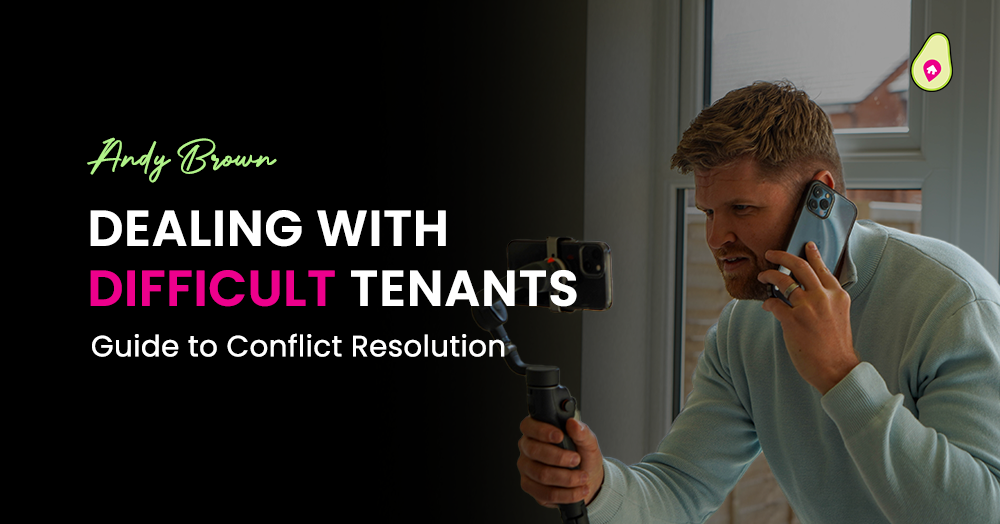
Dealing with Difficult Tenants: A Landlord’s Guide to Conflict Resolution
This blog offers key strategies for handling conflicts with difficult tenants, including clear communication, setting expectations, and knowing your legal rights. Insights from a seasoned Lettings Director ensure a smooth and stress-free rental experience.
As a landlord, dealing with difficult tenants can be one of the most challenging aspects of managing rental properties. Conflicts can arise over various issues, from late rent payments to property damage or disruptive behaviour. As a Lettings Director with years of experience, I’ve encountered and resolved numerous tenant disputes. Here’s a comprehensive guide to handling these situations effectively, ensuring a smooth and stress-free rental experience for both you and your tenants.
1. Establish Clear Communication
Good communication is the foundation of any successful landlord-tenant relationship. Make sure your tenants know how to reach you and feel comfortable doing so. Encourage them to report issues as soon as they arise, and respond promptly to their concerns. Clear, open communication can prevent small problems from escalating into major conflicts.
2. Set Clear Expectations
From the outset, set clear expectations about rent payments, property maintenance, and acceptable behaviour. These should be detailed in the tenancy agreement and discussed during the move-in process. By outlining your expectations clearly, tenants will know what is required of them, which can help prevent misunderstandings and disputes.
3. Document Everything
Keep thorough records of all communications, agreements, and incidents. This includes emails, text messages, and written notices. Documenting everything provides a clear paper trail that can be invaluable if disputes escalate to legal proceedings. It also shows tenants that you are organised and serious about managing your property professionally.
4. Address Issues Promptly
When problems arise, address them as quickly as possible. Ignoring or delaying action can cause issues to worsen and lead to resentment from tenants. Whether it’s a maintenance request or a behavioural issue, prompt attention demonstrates that you care about the property and your tenants’ well-being.
5. Stay Calm and Professional
It’s important to remain calm and professional, even when dealing with difficult tenants. Losing your temper or reacting emotionally can escalate the situation. Approach conflicts with a problem-solving mindset, focusing on finding a resolution rather than assigning blame. Professionalism helps maintain respect and can lead to more amicable solutions.
6. Know Your Legal Rights and Responsibilities
Familiarise yourself with landlord-tenant laws in your area. Knowing your legal rights and responsibilities will help you handle disputes correctly and avoid legal pitfalls. If you’re unsure about any aspect of the law, seek advice from a legal professional or property manager. Staying informed protects you and ensures you act within the law.
7. Offer Solutions and Compromises
When possible, offer solutions and be willing to compromise. For instance, if a tenant is struggling to pay rent on time, consider setting up a payment plan. If there are complaints about noise, suggest practical steps the tenant can take to minimise disruption. Offering solutions shows you’re willing to work with your tenants to resolve issues.
8. Use Mediation Services
If direct communication fails to resolve the conflict, consider using a mediation service. Mediators are neutral third parties who can help facilitate a discussion and find a mutually agreeable solution. Mediation can be a cost-effective and less adversarial alternative to legal action.
9. Know When to Take Legal Action
While it’s best to resolve conflicts amicably, sometimes legal action is necessary. If a tenant continually breaches the tenancy agreement, fails to pay rent, or causes significant damage to the property, you may need to serve an eviction notice. Ensure you follow the correct legal procedures to avoid complications and potential counterclaims.
10. Seek Professional Property Management
If managing tenant disputes feels overwhelming, or if you simply prefer to avoid the hassle, consider hiring a professional property manager. Experienced property managers can handle tenant communications, address issues promptly, and ensure all legal requirements are met. Their expertise can provide peace of mind and free up your time to focus on other aspects of your life or investment strategy.
By following these strategies, you can effectively manage conflicts with difficult tenants and maintain a positive landlord-tenant relationship. If you need any other lettings advice, I’m here to help. Give me a call or drop me a WhatsApp!